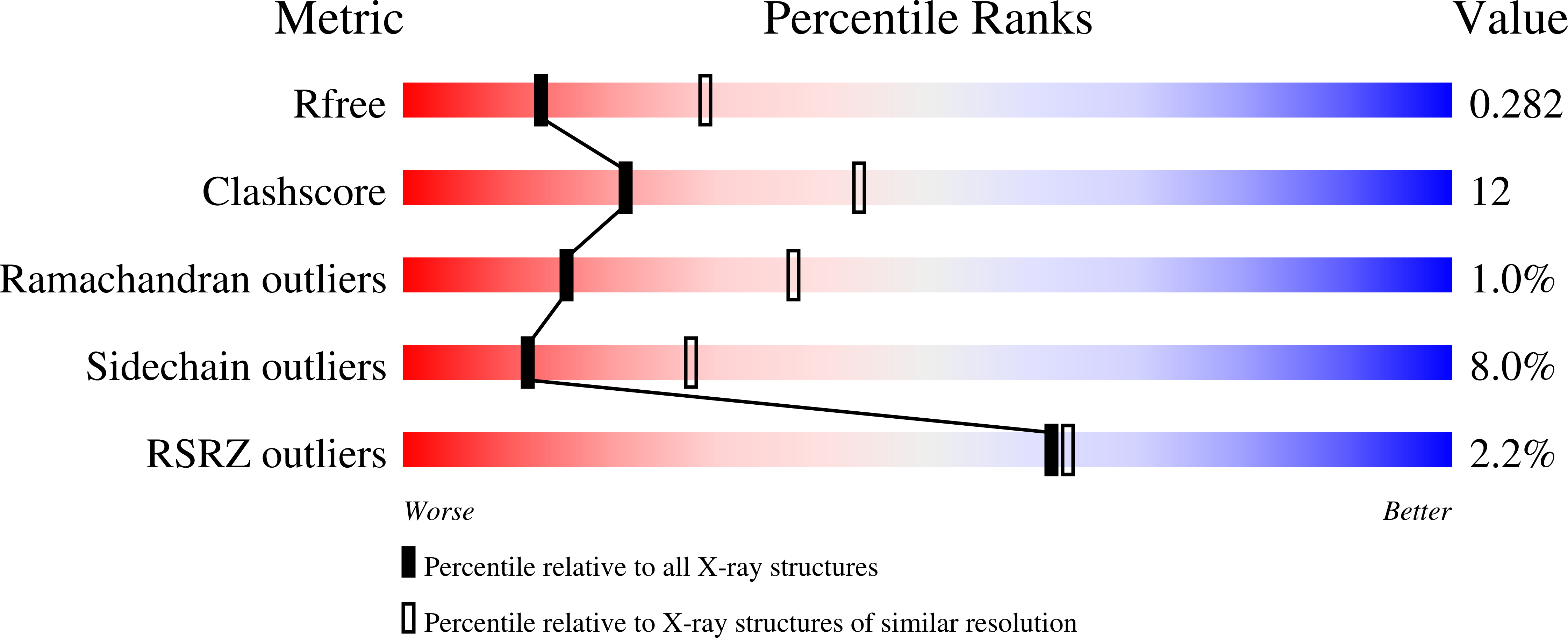Crystal Structure of the TLR4-MD-2 Complex with Bound Endotoxin Antagonist Eritoran
Kim, H.M., Park, B.S., Kim, J.-I., Kim, S.E., Lee, J., Oh, S.C., Enkhbayar, P., Matsushima, N., Lee, H., Yoo, O.J., Lee, J.-O.(2007) Cell 130: 906-917
- PubMed: 17803912
- DOI: https://doi.org/10.1016/j.cell.2007.08.002
- Primary Citation of Related Structures:
2Z62, 2Z63, 2Z64, 2Z65, 2Z66 - PubMed Abstract:
TLR4 and MD-2 form a heterodimer that recognizes LPS (lipopolysaccharide) from Gram-negative bacteria. Eritoran is an analog of LPS that antagonizes its activity by binding to the TLR4-MD-2 complex. We determined the structure of the full-length ectodomain of the mouse TLR4 and MD-2 complex. We also produced a series of hybrids of human TLR4 and hagfish VLR and determined their structures with and without bound MD-2 and Eritoran. TLR4 is an atypical member of the LRR family and is composed of N-terminal, central, and C-terminal domains. The beta sheet of the central domain shows unusually small radii and large twist angles. MD-2 binds to the concave surface of the N-terminal and central domains. The interaction with Eritoran is mediated by a hydrophobic internal pocket in MD-2. Based on structural analysis and mutagenesis experiments on MD-2 and TLR4, we propose a model of TLR4-MD-2 dimerization induced by LPS.
Organizational Affiliation:
Department of Chemistry, Korea Advanced Institute of Science and Technology, Daejon, Korea 305-701.


















